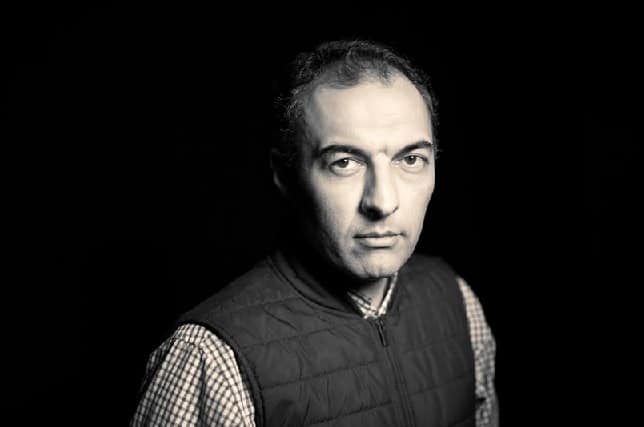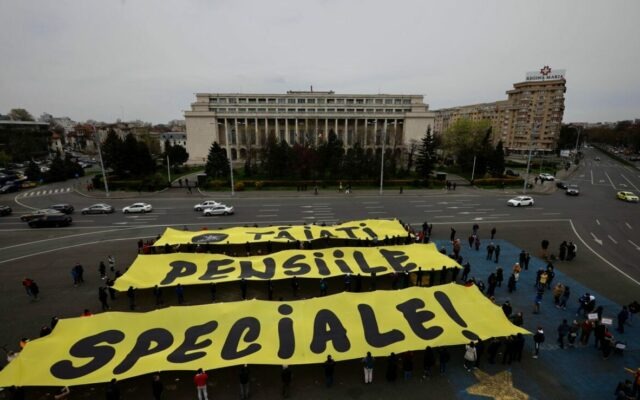Special pensions, early retirement at the peak of one’s career, and the conduct of former military institution heads post-retirement have become hot topics following recent events. The retirement at just 48 years old of SRI Deputy Director Cristian Bizadea, along with the cases of former SRI heads Florian Coldea and Dumitru Dumbravă, raises legitimate questions about state policies. This is the same state burdened by a growing budget deficit and public debt exceeding 50% of GDP.
Urmărește cele mai noi producții video G4Media
- articolul continuă mai jos -
It is important to note that special conditions for employees with significant professional restrictions during their service are normal and happen worldwide. It’s natural for society to compensate, either through special pensions or more favorable retirement conditions, those such as prosecutors and judges handling high-profile criminal cases, pilots, police officers, or secret service agents who risk their lives and health. However, the current legislation incorrectly generalizes these rights, extending them from Supreme Court judges to those in small courts, and from drug enforcement officers to desk clerks. This is the issue the state must address.
Retiring at just 48 years old and receiving tens of thousands of lei monthly as a former magistrate or military officer is downright obscene in a country that still ranks at the bottom of EU prosperity indices. Firstly, it represents a significant loss for the state, which invested in the education and training of these professionals, only for them to leave just when they have reached full experience.
Secondly, it is blatant discrimination against other employees, whether in the private sector or public service, who retire at 62 (women) or 65 (men). Ordinary employees look with maximum frustration at retirees or former magistrates who receive preferential treatment solely because their group had stronger political backing.
Thirdly, it is an affront to public funds. There are tens of thousands of special pensioners who, after 25 years of service, retire and start a new professional life while collecting exorbitant monthly pensions. Except for those who genuinely had risky or harmful jobs—military personnel, police officers, and field agents—the rest of the office workers have no reason to retire early.
Why should an HR employee from the Interior Ministry (MAI), Defense Ministry (MApN), or SRI retire at 48-50 years old? What hidden dangers lurked behind their stacks of paperwork? What is the reason for us taxpayers to pay their pensions for decades, deepening the general budget and pension and insurance deficits?
Fourthly, this is a threat to citizen safety. Unions and professional associations annually highlight the chronic personnel shortages in key public security institutions like the police, where physical presence is crucial. Visit any police station in the country, and you will see agents overwhelmed with tasks, while the exodus of experienced staff continues year after year.
We must also address parasitic structures like professional sports clubs within the Interior Ministry (MAI) and Defense Ministry (Steaua), with thousands of military employees. There is no economic or social logic for these budget-draining clubs to continue at a high-performance level. At most, maintaining sports structures for children and juniors would be acceptable.
There is also the issue of abusive, fraudulent retirements. A 2023 Libertatea investigation revealed that over 9,300 military personnel from the MAI, MApN, or SRI retired at an average age of 45 in the past five years, after being deemed „limited fit” or „unfit” by medical-military commissions. These individuals benefited from provisions in the 2015 military pensions law.
Another discussion concerns the behavior of young retirees from special sectors. It is up to the judiciary to determine if former generals Coldea and Dumbravă broke any laws. However, their case raises two legitimate issues. The first is related to the sums mentioned in their case, never denied by the protagonists, which astonished professionals in the consulting and legal fields. These amounts are vastly higher than market standards, prompting questions about the services rendered by former SRI chiefs to justify such sums. The second issue is a moral one: how can a former institution head, sworn to defend the country, work for clients prosecuted or even convicted for embezzling the same state?
These privileged groups have not only secured rights beyond those of ordinary citizens but also managed to avoid any post-retirement constraints. This is the moment for the state to find solutions to exercise real civilian control over military institutions and former employees with access to secret information and strategic decisions.
How did we reach a point where special retirees became privileged citizens? The blame lies with the PSD and PNL parties, which, under the USL coalition, dismantled the difficult special pension reform made by the Boc government in 2010. The Ponta government, spearheaded by General Gabriel Oprea, initiated the 2015 military pension law, easily passed by Parliament. A 2017 PSD decision allowed military personnel to retire at 40, a strategic move by Liviu Dragnea to weaken military institutions by causing a retirement epidemic, which continues today.
All attempts by the opposition party USR to eliminate special pensions have been blocked by the PSD and PNL. The same PNL that promised in the 2019 campaign to abolish special pensions within three days of winning the elections. Instead of abolishing special pensions, the PNL appointed a general who himself benefits from a special pension. A greater affront to the electorate is hard to imagine.
The issue of special pensions for those in the judiciary, military, police, SRI, and other privileged systems is set to explode again. The presidential and parliamentary election campaigns are about to begin. Additionally, an inevitable budget crisis is looming in 2025. We will then see how the new-old PSD-PNL majority justifies inevitable tax increases for ordinary citizens and businesses while maintaining unjustified privileges for super-citizens.








